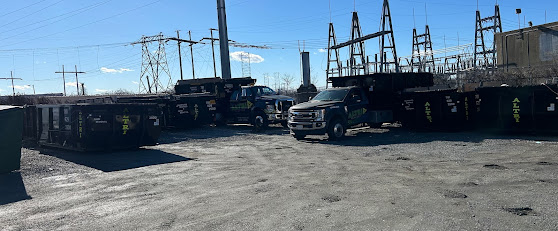When was the last time you disposed of something and thought about where it ends up? The lifecycle of trash and debris is a cornerstone of modern living, yet many of us remain blissfully ignorant of its intricacies, consequences, and alternatives. This post isn’t designed to chastise, but to educate, provoke thought, and inspire action. Let’s delve deep into the world of waste management, where trash is far from out of sight and out of mind.
Trash Creation and Disposal: More Than Meets the Bin
The genesis of trash is as diverse as our consumption habits. From everyday packaging to large-scale construction debris, our throwaway culture generates an immense volume of waste. The growing amalgamation of trash from various sources poses a significant challenge for disposal.
Common Disposal Methods
Landfills, burn facilities, and transfer stations are the workhorses of trash disposal. Yet, despite their role in keeping our streets and homes tidy, they bear an environmental cost that too few people acknowledge.
Each method comes with its own set of environmental issues:
- Transfer Stations: Often the first step in waste disposal, these act as holding bays for trash before transportation to final disposal facilities. They’re convenient but contribute to air pollution and traffic.
- Landfills: The most traditional and widespread form of disposal. Landfills, while systematically designed, pose risks of soil and water pollution if not well-managed. With limited space and increasingly strict regulations, the days of the open dump are long behind us.
- Burn Facilities: Aiming to convert waste to energy, these facilities can be controversial. While they reduce the volume of waste sent to landfills, they also release pollutants into the atmosphere, raising concerns about air quality.
Impact on the Environment: Waking Up to Our Trashy Reality
Improper disposal practices come back to haunt us, sometimes quite literally. The long-term effects of our trash on the environment are palpable and alarming.
Pollution and Ecological Damage
From plastic waste suffocating marine life to toxic chemicals leaching from landfills, our environment bears the brunt of our disposable habits. The degradation of ecosystems and the long-term impact on human and animal health is a real and present danger that cannot be ignored.
The Recycling Process: Rescuing Resources with the Three ‘R’s
Recycling is the superhero in our fight against the growing piles of waste. Beyond environmental benefits, recycling also conserves energy, saves natural resources, and supports local economies.
From Bin to Reuse
The recycling process can be simplified into a few key steps, from curbside collection to sorting, cleaning, and repurposing. Through these steps, what was once considered trash is transformed into reusable materials, breathing new life into the circular economy.
Ways to Reduce Trash Production: The Power of Prevention
Waste reduction is a powerful ally in the quest for a cleaner environment and more sustainable living.
Tips and Strategies
Simple changes in our daily routines can significantly reduce trash output:
- Use reusable containers and bags
- Avoid single-use plastics
- Compost organic waste
- Opt for digital over paper
- Repair rather than replace
Special Considerations in Massachusetts: Leading the Way in Waste Management
Massachusetts stands at the forefront of innovative waste management practices. With a state-wide waste ban on key recyclables, initiatives for recycling mattresses, and an encouraging waste reduction ethos, it serves as a model for sustainable trash management.
The Massachusetts Waste Ban
Instituted to promote recycling over disposal, the waste ban in Massachusetts prohibits the disposal of certain materials, including glass and metal containers, single-stream recyclables, and more. As a result, there’s an incentive to recycle and sort items properly.
Mattress Recycling
A surprising contributor to landfill waste, mattresses, and box springs are now banned from disposal in landfills. With the implementation of the Massachusetts Mattress Recycling Incentive, thousands of mattresses have been diverted from landfills.
Rising Costs
Managing trash comes at a cost, both to the environment and the taxpayer. As regulations tighten to encourage recycling, the financial burden of proper waste management is shifting. These changes are necessary but drive home the message that the true cost of waste disposal is more than just a line item on a balance sheet.
Conclusion: From Awareness to Action
Our journey through the trash and debris lifecycle has taken us from bins to bans, from landfills to legislation, and from pollution to prevention. If there’s a common thread in this narrative, it’s that every individual action adds up.
We implore you to share this post to catalyze conversations and spark ideas on how we can collectively do better. Start small with personal waste reduction strategies, advocate for better waste management practices, and inspire your community to take pride in the planet we all share. The lifecycle of trash begins and ends with us, and it’s through understanding, action, and innovation that we can turn the tide on trash.




No comments:
Post a Comment